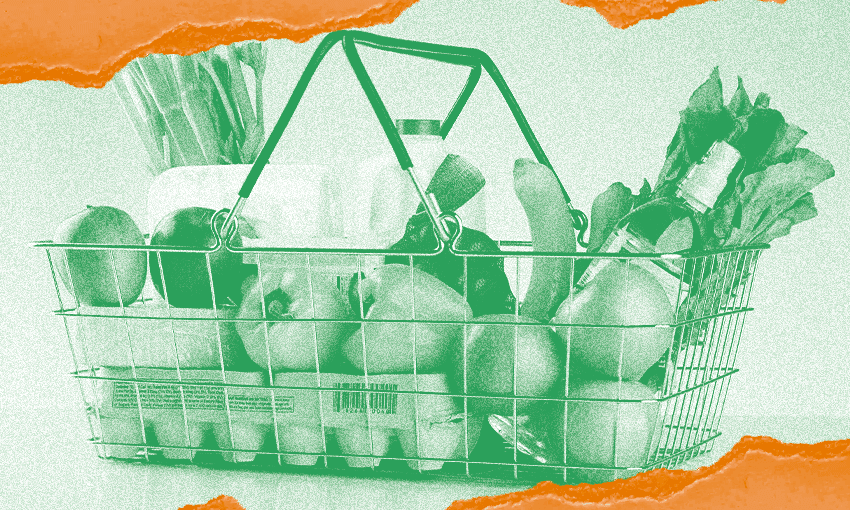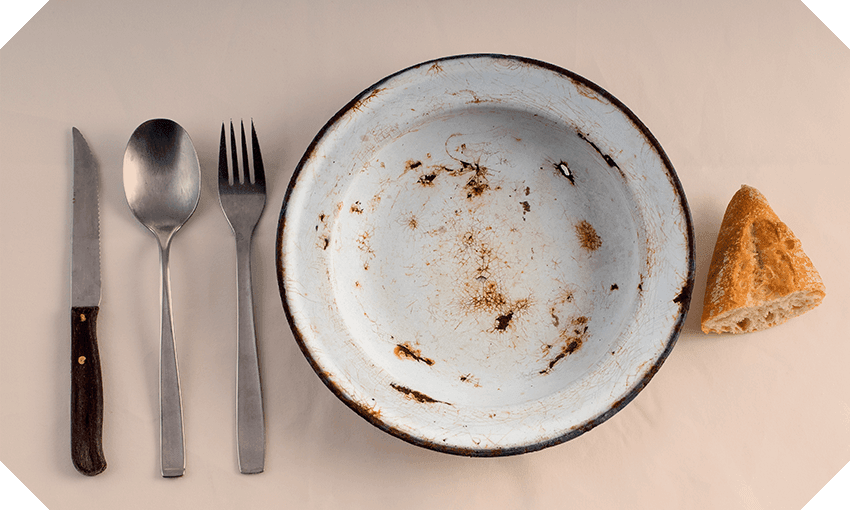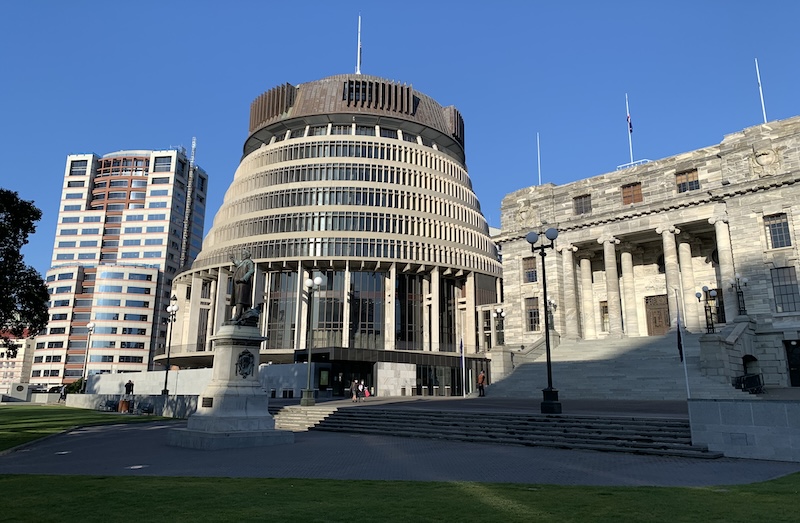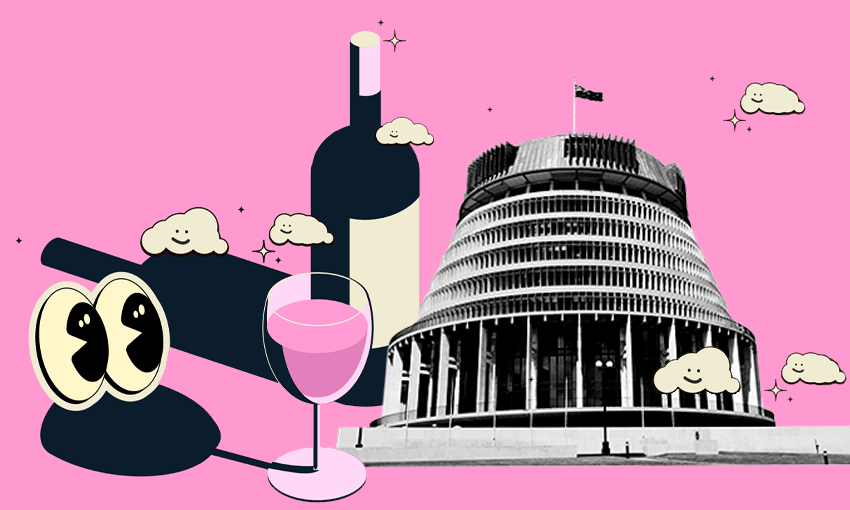This week, Rawiri Waititi’s member’s bill to remove GST from food will have its first reading. Here’s what that could mean.
What is GST?
Goods and services tax is New Zealand’s tax on stuff you buy: food, books, spa treatments, cat food, website design, and basically anything else that isn’t your salary or money from investments.
It was first introduced in 1986, and helped to pay for tax cuts for individuals. Unlike income tax, which is staggered so that people with less money pay a lower percentage of tax, GST is a flat tax. After being increased in 2010, it’s now 15% for everyone. GST includes food, which means that everything you see in a supermarket has had 15% added to the price, which goes to the government. When the Tax Working Group looked at the impact of GST on food in 2018, they found that food and drink contributed $2.6 billion out of a total of $18.7 billion of government revenue from GST.
What is exempt from GST?
There are already GST exemptions for a few things. Exports, including exported food, aren’t taxed as GST as it only applies to sales in New Zealand. Financial services and precious metals also don’t have GST added.
What do other countries do?
Several comparable countries to New Zealand have forms of GST exemptions for food, including Australia, Canada, Mexico and the UK. Sometimes these countries call it VAT (value-added tax) instead, but it’s basically the same thing. These are applied in different ways: mostly the exemption is for food classed as “essential”, so no one is getting discounts on luxury chocolate.
This can make things complicated. For example, in Australia, a bread roll sold in a supermarket is GST-exempt, but a bread roll in a cafe would have GST added; biscuits are taxed, but a rusk for a teething baby to suck on isn’t. In the UK, cold takeaway food isn’t taxed (something like frozen dumplings you’d take to cook at home), but if you bought those same dumplings hot from the same vendor, you’d have to pay tax, even if you were still eating at home.
In general, New Zealand’s tax rates, both on GST and personal income, are lower than most other OECD countries. The Tax Working Group’s findings showed that a higher proportion of overall tax revenue is from GST than in most other countries; GST is set at a lower percentage here than most other countries, because New Zealand doesn’t have as many exemptions to their GST regimes.
So, what is Rawiri Waititi’s bill proposing to change?
Waititi’s amendment to the Goods and Services Tax Act, which you can read in full here, would “remove GST from all food products and non-alcoholic beverages”. It explicitly cities the regressive quality of the tax, which places a greater burden on those with less money. Not bothering with the technicalities of types of food laid out in Australian law, it simply applies the tax removal to all food, as well as consumer packaging of food that is necessary for the food supply (presumably so it doesn’t make it confusing for businesses trying to separate, for example, tax on cardboard flour packaging from the flour inside).
Will removing GST really improve outcomes for people in need?
The issue with removing tax to lower food prices is the same as adding tax which increases food prices: it affects everyone equally, decreasing government revenue and lowering taxes for people with high incomes as well.
Economists largely panned Labour’s 2023 election commitment of removing GST from fruit and vegetables; their criticisms give a sense of what the impact of removing GST from all food might be. Former finance minister Grant Robertson had previously described the policy as a “boondoggle”. His former adviser, economist Craig Renney, said that while it was a better idea than National’s tax cuts, which largely give more to wealthy people and homeowners, “there are more direct routes to put money in people’s pockets.”
People short on food agree: at a community kai night aimed at homeless people in Auckland last month, several people told The Spinoff that they’d like to see food discount or food stamp schemes specifically for low-income groups.
Despite this, removing GST from food is a popular policy: 76% percent of people supported the idea in a Newshub poll from 2022, and 20,000 have signed Te Pāti Māori’s petition on the issue. But even though most people like the idea of food not being taxed, it could be hard to identify how much of a price reduction would be due to GST removal; it likely wouldn’t bring the cost of food down by the full 15% it is taxed at now.
A number of factors go into food prices, which frequently fluctuate; for example, due to different seasons.
When Labour’s independently commissioned Tax Working Group looked at GST in 2018, they concluded that “removing GST from food and drink would provide a greater absolute benefit to higher income households than lower income households”. This is because higher income people spend more on food – not because they necessarily eat more, but because they are able to purchase more expensive items.
Who will support this bill? Will it pass its first reading?
This isn’t an issue that necessarily falls along clear party lines, but parties’ previous support of similar ideas can be telling.
In a press release, Rawiri Waititi said he was encouraging all parties to support his member’s bill through its first reading, regardless of political alignment. “On some kaupapa, parties must put the rubbish politicking aside and come to a mutual agreement for the wellbeing of our mokopuna,” he said. “The coalition said they’d do something to address the cost of living. This bill is an opportunity for them to have a positive impact after a terrible start to their governing term.”
Te Pāti Māori and their MPs will support the bill, since it comes from their party.
The Green Party was not supportive of Labour’s proposed removal of GST from fresh vegetables. In an interview at the time, MP Chlöe Swarbrick (now party co-leader) said that the Green Party was focused on “tax justice” which GST removal didn’t address.
The Labour Party campaigned on a partial version of the policy in 2023, suggesting that GST should be removed from fruit and vegetables. The policy, which had also been tried in 2011, didn’t seem to capture the imaginations of voters; after being widely criticised for being impractical, it faded into the background of the election campaign. While the party hasn’t made a definitive statement about supporting the bill, Labour-aligned commentator Shane Te Pou has urged them to do so. “If Labour votes against this bill, a lot of Labour supporters will be very unhappy and they will not forgive or forget.”
New Zealand First campaigned on removing GST from food in the 2014 election; however the party was in opposition after the election and has not campaigned on the issue since.
While the Act Party is generally in favour of removing taxes – “providing tax relief to income earners” is one of its key focuses, according to its coalition agreement – they will likely not support the bill, as they were strongly supportive of GST when Labour announced their fruit and vege policy last year. “The simple, universal nature of GST is what makes it such an effective revenue collector, where would you stop with the exemptions?” David Seymour said in a press release. “There’s nothing good about this policy,” he said in a Newshub interview.
Because National has its own “tax relief plan” even if there are questions about its costing, they are unlikely to support Waititi’s bill; lowering the taxes they have already said they want to do is already creating problems for Nicola Willis.
























Discussion about this post